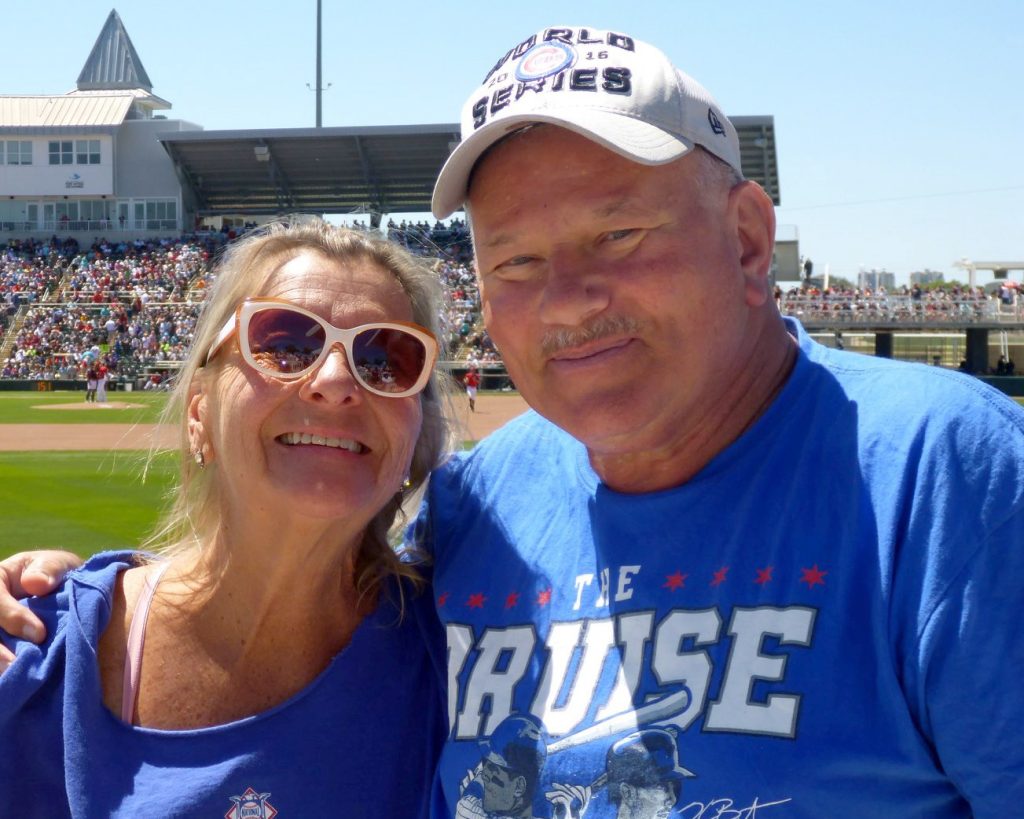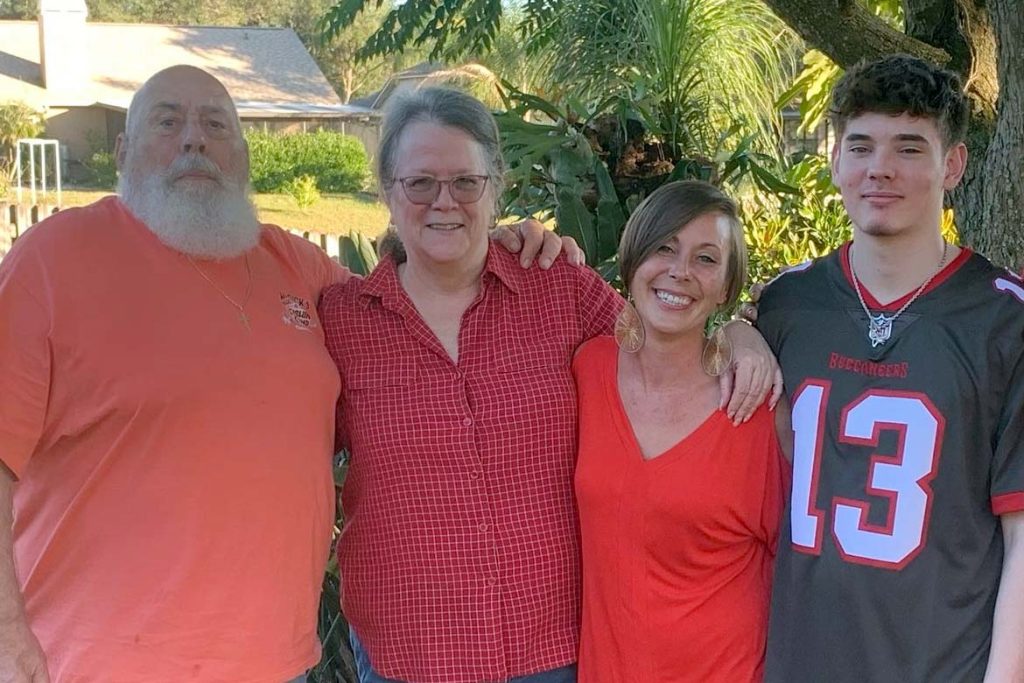When Hurricane Ian slammed into southwest Florida last month, University College Program Coordinator Michelle Schuline ’03 watched in disbelief as her father, Mitch Pacyna, shared videos from his waterfront home in Fort Myers Beach of rapidly worsening conditions and ensuing destruction.
Known as the “Mayor of Fort Myers Beach” because of his warm and hospitable personality, Pacyna and his wife, Mary Wojciechowski, were accustomed to weathering storms in their home of 27 years—a single-story beach house atop a lower-level garage converted into their personal bar.
A native of Franklin Park in northwest suburban Chicago, Pacyna decked out the space with Chicago sports memorabilia, photos of family and friends, and even a few pieces of Illinois State Redbirds gear as a nod to his daughter’s alma mater.
“He was welcoming and friendly, and everybody knew him,” Schuline said.
In retirement, Pacyna, 74, worked part time as a greeter at the Fort Myers Beach Public Library. And he loved entertaining his big group of friends—along with occasional strangers who mistook his elaborate garage bar for a public establishment. “Come on in. Have a seat,” he’d tell them. “Can I get you a drink?”
Fort Myers Beach takes a direct hit
The storm surge pushed ashore by Hurricane Ian’s 150-mph wind rapidly flooded Fort Myers Beach. Pacyna posted a video to Facebook of pieces of his beloved bar floating away, past his submerged mailbox, atop cascading whitecaps.
“How sad to see the bar going down the street,” Pacyna said in the video. He added, “This ain’t letting up yet. If it gets a little higher, we may have to go on the roof.”
An hour later, Pacyna posted in all caps, “OK, WE’RE TERRIFIED!”
Pacyna and Wojciechowski’s house began to collapse as Fort Myers Beach absorbed a direct hit from Hurricane Ian. The couple jumped in the water to escape, but Pacyna was overcome by the surging current. Wojciechowski and a neighbor managed to grasp a fence and a tree, above the raging water, for nearly four hours before they were rescued. Wojciechowski didn’t see her husband again.
The following day, a neighbor surveying the extensive damage found Pacyna’s and Wojciechowski’s dog, a fluffy white Maltese named Lulu, waiting patiently by her family’s leveled home. Lulu had jumped from Wojciechowski’s arms into the storm surge, but miraculously, survived.
A week later, Pacyna’s body was found, surrounded by family photo albums in the sand. He was known for always taking photos of—and with—his cherished family and friends.
“It’s ironic how the ‘picture guy’ ended up with all his pictures by his side,” Schuline said. “That kind of gives us some comfort, that at least he had his pictures by him.”
In the days since her father’s death, Schuline has been overwhelmed by an outpouring of condolences and support—including from her colleagues at Illinois State. A GoFundMe campaign she started to help Wojciechowski rebuild has raised more than $22,000, and hundreds of friends have posted their memories and photos on Pacyna’s Facebook page.
“My dad enjoyed life, and he lived it to the fullest,” Schuline said. “It’s good to remember that you don’t have all the time in the world—like he thought he did. Just live your life to the fullest and enjoy every moment.”
Tampa Bay spared from worst of Ian
Sophomore exercise science major Jeff Reidy had been tracking Hurricane Ian since it emerged as a tropical storm churning over the Caribbean. Within a couple of days, the hurricane’s forecast cone, initially wide, began to narrow in on Reidy’s hometown: Tampa Bay.
“As the storm got closer, I started making my phone calls,” Reidy said. “I had to call my great grandma—she lives on her own and is pushing 86 now. I had to call my dad, my little sister, my stepmom, my mom, my other grandmas, uncles, and cousins—to make sure everyone was doing OK and that they were ready.”
Reidy said most of his family lives in an older part of Tampa Bay where homes aren’t built to withstand severe hurricanes. And evacuating is challenging, Reidy said, because hotels are quickly booked, and highways become jammed. So, Reidy’s family hunkered down, expecting the worst.
From his room in Cardinal Court, Reidy watched the radar and continuously texted with his family. When Ian made landfall, Reidy’s family stopped returning his text messages and didn’t answer his calls.
“That’s always the hardest,” Reidy said. “When you’re making calls while the storm is going on, and nobody is picking up.”
Hurricane Ian had swerved just south of Tampa Bay. High winds from the storm knocked out power and cell phone service for Reidy’s family. Fortunately, damage was relatively minimal in their area.
Reidy felt relieved when, after two days without hearing from his family, he finally received a text message from his little sister, Olivia. Everyone was OK, she said.
“It was pretty nerve-wracking because my family lives in a flood zone, so if the storm hadn’t swerved, I don’t know,” Reidy said.
“I’m pretty thankful.”



